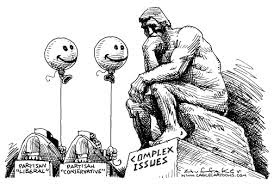The myth of 21st Century Education

Smart presentations don't mean valuable insights. So it is with the current fad of presenting the vision of an all-new 21st-century education - through presentations, conferences and infographics - style trumps substance all the way through. For, despite the claims of revolutionary changes in society and the workplace, the neat charts that lay down 21st-century skills next to the 20th-century one's show do not how different they would be, but rather how similar these are projected to be. We are told that we have arrived at a fundamentally disruptive moment in history and we need new skills. So, we need, for example, communication and critical thinking, learning to learn and a host of other cool things. Indeed, many of those terms are very familiar to the educator: Many of those were around for more than two centuries, ever since the dreams of liberal education were spelt out. When these slides were presented, I often wondered whether the point about critical thin...





